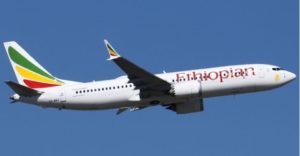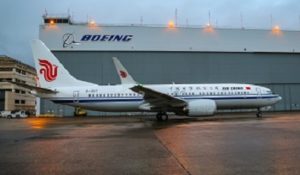Airliner market worth $4.8 tn in 20 years: Boeing

Global demand for aircraft in the next 20 years will be even stronger than estimated so far, pulled by demand in the Asia-Pacific region and from low-cost carriers, US manufacturer Boeing said on Tuesday.
Air traffic is rising at an explosive rate, with the number of passengers carried per year to double over the two decades, Boeing estimated.
Boeing raised its estimate of global demand by 3.8 percent to 35,280 aircraft, and in value by 7.0 percent to $4,800 billion (3,600 billion euros).These increases were from estimates made last July, said the vice president for marketing of Boeing Commercial Airplanes, Randy Tinseth.
Boeing and European aircraft manufacturer Airbus compete strongly for most of the existing market for airliners, but they face increasingly strong competition in years ahead from growing manufacturers in emerging economies.
Airbus estimated in its last forecast in September that from 2012-2031, demand for new airliners would total 28,200 and that this market would be worth $4,000 billion.
Boeing, publishing its market estimates before the Paris Air Show opens on Monday, said that from 2013-2032, demand in the segment for medium-range airliners with a single aisle, typically supplied by the Boeing 737 model or Airbus A320, would total 24,670 aircraft worth $2.29 billion.
Demand in this sector would continue to be led by orders from low-cost airlines and by demand from emerging economies.
More than one third of total demand would come from the Asia-Pacific region where airlines would need 12,820 new aircraft.
The markets in North America, where fleets were ageing, and in Europe would each generate demand for more than 7,000 aircraft.
Airlines in Latin America would order 2,900 planes, in the Middle East 2,610, and in Russia and the neighbouring confederation of independent states 1,170.
Demand in Africa would total 1,070 aircraft.
Boeing also raised what it expects to be its sales of long-haul and medium-haul aircraft, but reduced by 4.0 percent its forecast for sales in the segment for jumbo aircraft with 400 seats or more.
Boeing accounts for 10.0 percent of this market with its 747-8 aircraft which is the latest version of the Jumbo Jet 747. The main rival product is the Airbus A380, but Airbus has taken orders for only 262 of these.
The two giant manufacturers hold different views of the market for jumbo airliners.
Airbus is confident that the future lies with the superjumbo A380, the only aircraft in its class, because of the continuous growth of world air-passenger traffic.
Boeing holds that airlines will prefer smaller long-haul aircraft such as its 787 Dreamliner. The first version of this aircraft can carry up to 250 passengers.
Tinseth said: “This forecast gives us confidence as we increase our production rates and invest in new products like the 777X and 787-10X.”
Boeing has not yet launched officially its new long-haul models with wings built from composite materials to complete its range of airliners which use less fuel than previous planes.
Tinseth said that in 20 years’ time, the number of passengers carried each year will rise from 3.0 billion to 6.0 billion.
Huge investment in aircraft, airports and air-traffic management systems will be needed to meet this explosion of demand, he said. – AFP















